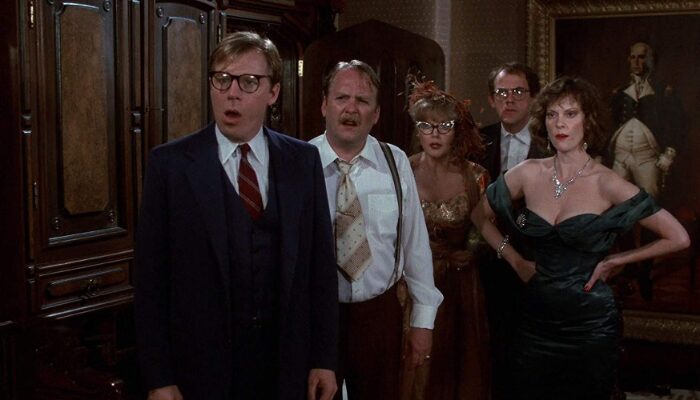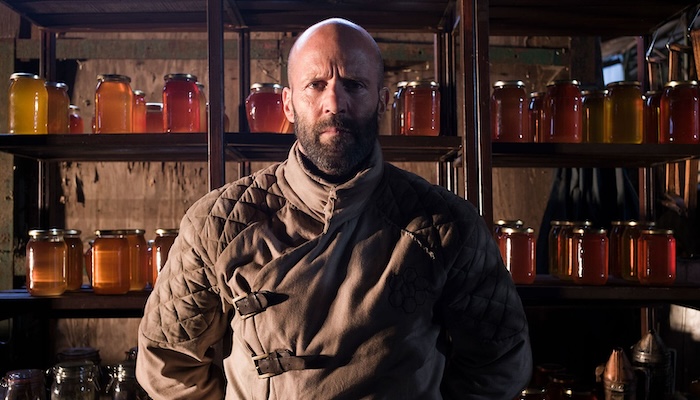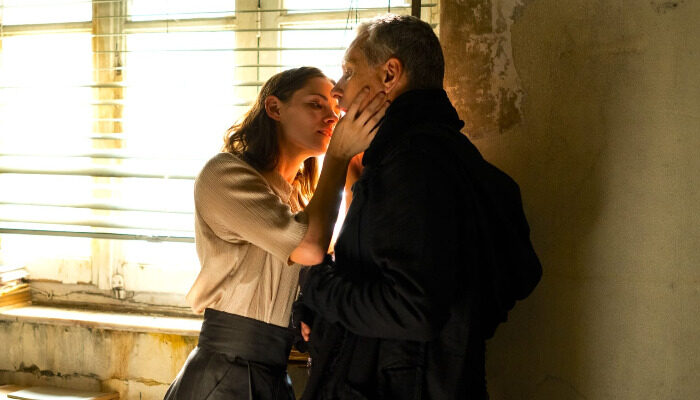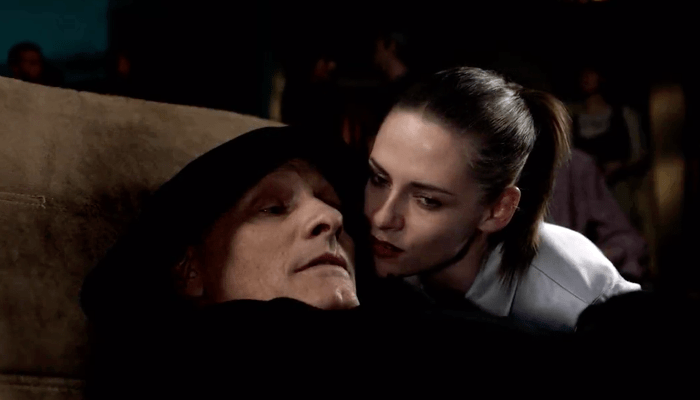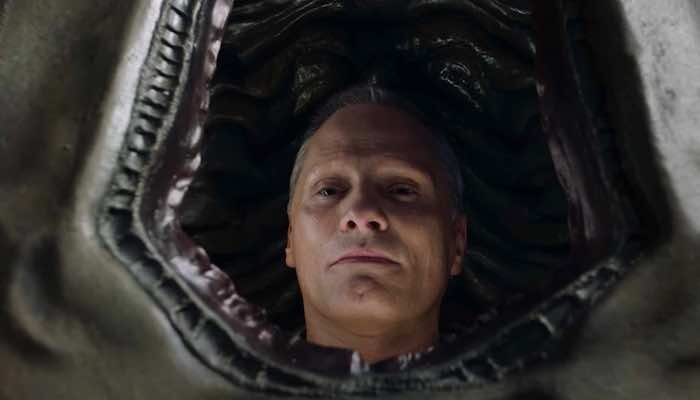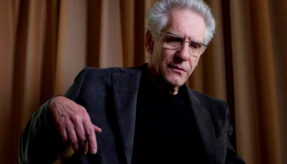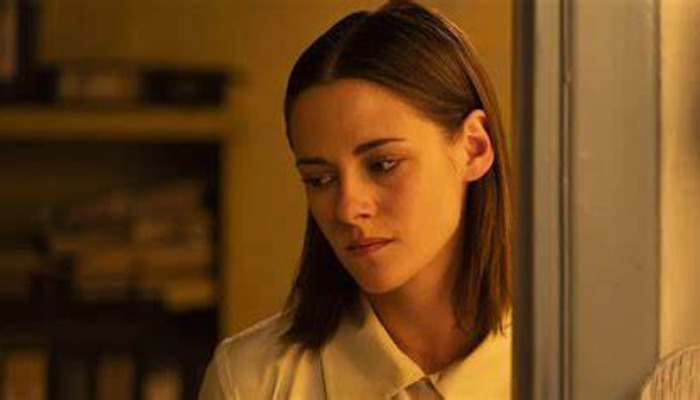CRIMES OF THE FUTURE: Kristen Stewart Offers Insight into David Cronenberg’s Latest Film
Kristen Stewart states that Cronenberg’s Crimes of the Future is a society without pain
Kristen Stewart mentions that society has eliminated physical pain in David Cronenberg‘s Crimes of the Future.
This is true to form for this director, but he has gone well beyond that. In the past Cronenberg has also used the pleasure principle as an insidious vector in his body-horror films, and quite early in his career. His 1975 shoestring production of Shivers, for example, explores a covert medical experiment gone awry. This particular plague spreads among the residents of a secluded upscale hi-rise. The infected victims generate new organs that drive physical their appetites to new heights, carnal ones in particular. The carriers are then spurred on to ‘spread the love.’
As others have reported, the title Crimes of the Future has been co-opted but not the plot; this is not a remake.
Insofar as Cronenberg’s angst-ridden themes snake throughout his body-horror films, however, there are plenty of similarities. The mutations in this relatively short film (65 minutes) are deliberate — an organic artistic form in which performance artist Saul Tenser, portrayed by Viggo Mortensen, generates new body parts as part of his craft, along with tattoo artist Caprice, played by Léa Seydoux, and Kristen Stewart as his fan.
From David Cronenberg’s earliest projects, physical transformations (in one way or another) have often played an important role in his films. And often enough they involve the body adapting to some new and/or covert technology. Videodrome and The Fly are good examples.
Like the works of David Lynch, Cronenberg’s films consistently confront the sensibilities of the audience; but unlike Lynch’s brand of surreal dream-like abstraction that relies on finesse, Cronenberg employs a direct, gruesome, visceral grittiness more appropriate to the horror genre.
There is a popular plot device in the science fiction genre of a ‘robot revolution’, a clash between organic and mechanic, an ‘us-versus-them,’ usually within the framework of a dystopian society. But Cronenberg invests heavily in the internal life of his heroes; their conflicts are familiar to people of all stripes. So too does he examine the effect of human evolution through an unflinching scrutiny of the individual, as he did with scientist Seth Brundle in The Fly, or psychic Johnny Smith in The Dead Zone.
The synopsis of Crimes of the Future hinted at in the media suggests a greater focus on artistic potency and allure rather than technological intervention (although it is possible that this may still play a part). Saul Tenser provides a canvas on which tattoo artist Caprice inks out her medium — a possible commentary on the continued trend of today’s body art. Kristen Stewart seems to stand as a symbol for the audience in general, but with Cronenberg’s penchant for up-close-and-personal, the loyal fan is a better fit, especially if Tenser’s performance, as suggested in one synopsis, is a novel one.
Leave your thoughts on Crimes of the Future below in the comments section. Readers seeking to support this type of content can visit our Patreon Page and become one of FilmBook’s patrons. Readers seeking more movie news can visit our Movie News Page, our Movie News Twitter Page, and our Movie News Facebook Page. Want up-to-the-minute notifications? FilmBook staff members publish articles by Email, Twitter, Facebook, Instagram, Tumblr, Pinterest, Reddit, and Flipboard. This news was brought to our attention by The Playlist.
Related Articles
FilmBook's Newsletter
Subscribe to FilmBook’s Daily Newsletter for the latest news!





